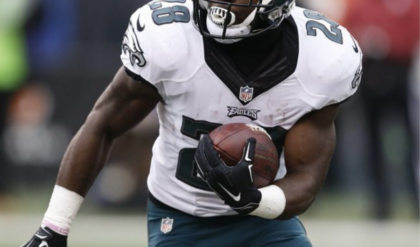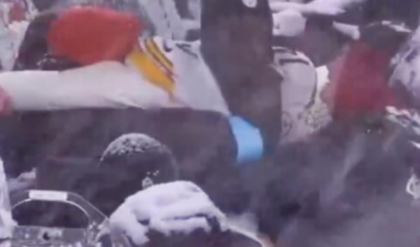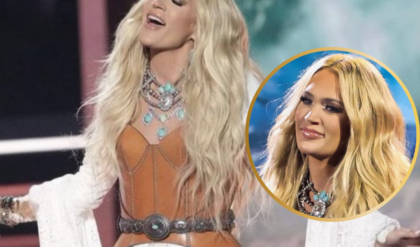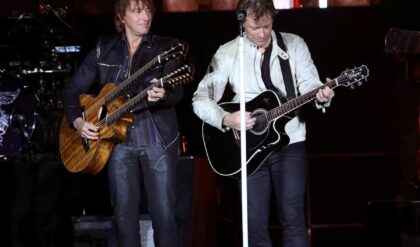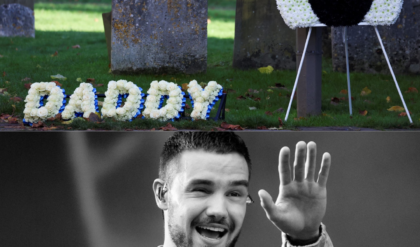Rob McElhenney, the co-creator and star of the popular television series “It’s Always Sunny in Philadelphia,” recently expressed his thoughts on a surprising development in the highly anticipated film “Deadpool 3.” The actor, who had been excited about a cameo role in the film alongside Ryan Reynolds and Hugh Jackman, was disappointed to learn that his scene had ultimately been cut from the final version of the movie. This news has sparked discussions among fans and industry insiders alike, highlighting the complexities of filmmaking and the often unpredictable nature of the editing process.
In a statement shared on social media, McElhenney conveyed his mixed feelings about the situation. While he was excited to have the opportunity to work alongside Reynolds and Jackman, his disappointment was palpable when he revealed that his cameo would not make it into the film. McElhenney’s reaction resonated with fans who are familiar with the challenges actors face in the industry, especially when it comes to editing decisions that can drastically alter the final product. The cutting of scenes is a common practice in Hollywood, yet it can still be disheartening for those involved, particularly when they have high hopes for their contributions.
The cameo was highly anticipated not only because of McElhenney’s popularity but also due to the film’s star-studded cast. “Deadpool 3” marks the return of Ryan Reynolds as the titular character and Hugh Jackman reprising his iconic role as Wolverine. The film has generated considerable buzz within the entertainment community, especially as it brings together beloved characters from the Marvel universe. McElhenney had expressed his excitement about joining such a legendary lineup, making the news of his scene being cut all the more significant.
Fans were quick to react to the news of McElhenney’s cameo being cut, taking to social media to express their disappointment. Many shared their hopes that the scene would eventually see the light of day, whether through a director’s cut or as a special feature on the home release of the film. This kind of grassroots support from fans often plays a pivotal role in influencing studios to consider alternative releases, especially when there’s a palpable demand for content that showcases beloved characters and actors.
The discussion surrounding McElhenney’s cameo also brought forth broader conversations about the importance of cameos and fan service in superhero films. Cameos have become a staple of the genre, often serving to surprise audiences and connect different parts of a larger cinematic universe. The excitement of seeing unexpected faces in these films can elevate the viewing experience, and McElhenney’s involvement promised to be a fun addition. His comedic background and connection to the world of television comedy made fans eager to see how he would fit into the tone of “Deadpool.”
Despite the disappointment, McElhenney remains optimistic and supportive of the film. His reaction underscores a professional attitude that many in the industry strive to maintain, even in the face of setbacks. Instead of dwelling on the negative, he chose to celebrate the project and express gratitude for the opportunity to be involved, no matter how brief. This perspective is not only refreshing but also serves as a reminder of the collaborative nature of filmmaking, where numerous factors come into play during the editing process.
Moreover, McElhenney’s reaction highlights the unpredictable nature of the entertainment industry. Actors often invest significant emotional energy into their roles, and the reality that their contributions might be altered or eliminated altogether is a risk they must accept. This experience is not unique to McElhenney; many actors have faced similar situations throughout their careers, leading to a shared understanding among industry professionals about the challenges of creating a cohesive final product.
The cutting of McElhenney’s scene brings attention to the editorial decisions that go into filmmaking. Directors and editors often have to make difficult choices regarding pacing, narrative flow, and character development. These decisions can lead to the exclusion of scenes that, while entertaining, may not serve the overall vision of the film. The reality is that even the most beloved scenes can end up on the cutting room floor if they do not align with the final direction of the project.
As “Deadpool 3” continues to build anticipation ahead of its release, McElhenney’s cameo and its subsequent removal could serve as a talking point for fans and critics alike. The film, expected to blend humor, action, and the unique charm of its lead characters, has already generated substantial buzz. McElhenney’s involvement, albeit brief, could have added another layer of excitement to the film, illustrating how interconnected the Marvel universe has become, especially with the recent expansions into multiversal storytelling.
In addition to discussing his cameo, McElhenney took the opportunity to reflect on his own career trajectory. He has been a prominent figure in the television landscape for nearly two decades, and his journey from a struggling actor to a celebrated creator and star is inspiring to many. His work on “It’s Always Sunny in Philadelphia,” which has become a cultural phenomenon, showcases his talent for blending humor with poignant social commentary. This personal reflection, even in the context of a cameo, highlights how actors evolve
Watch video:
